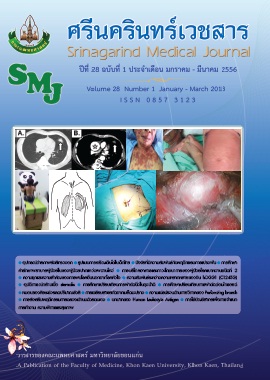Use of the International Classification of Functioning, Disability and Health (ICF) to develop database of persons with disabilities (PWDs)
บทคัดย่อ
The ultimate goal of rehabilitation for persons with disabilities (PWDs) is to improve functioning status to live independently and be actively engaged in mainstream society. To achieve this goal, a capacity-based data, rather than a conventional impairment-based data where merely number and types of impairment are included, should be used to reflect functioning and real needs of PWDs. The International Classification of Functioning, Disability and Health (ICF), being used as conceptual framework, classification of health and codes, can be used as a tool to develop a capacity-based data.
From literature review, ICF contents are correlated with other standardized quality of life tools. A number of reports show that many health data of chronic diseases are covered by ICF and ICF can be used as a “common language” to communicate across personnel with different backgrounds working together to promote quality of life of PWDs. However, there are some limitations in using qualifiers to define levels of disability that should be overcome before implementation of the tool. Thai authorities should consider ICF to be used in disability surveys to achieve a capacity-based data as a baseline to develop effective and comprehensive rehabilitation policies. Keywords: ICF, person with disability (PWD), database, quality of life




